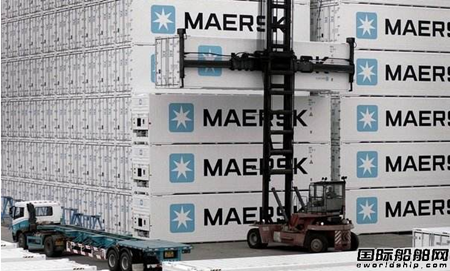马士基的目标一直都十分明确,不是数量或市场份额,而是盈利。数量和市场份额只能被当作是达成目标盈利的一种手段:为了更好的运营和商业绩效。
话虽如此,数量和份额的发展显然面临压力。据相关数据显示2022年上半年,因为需求强劲导致运价处于高位,海运业务取得了有史以来的最强业绩,营收增长33%。这里有趣的方面不是 2021 年和 2022 年的极高利润——而是回归正常市场的逆转,这是令人感兴趣的。

值得注意的是,自2021年海运价格冲上历史高位后,马士基、达飞、中远海控等全球航运巨头纷纷加强了长约合同的业务占比,以期将海运价格维持在高位,这一战略保障了马士基去年的利润。
当然,随着大流行的爆发,销量急剧下降,但除此之外,很明显2021 年的销量正在稳步下降,2022年下降加速。从去年息税前利润309亿美元,到今年预计息税前利润20-50亿美元,马士基预计今年利润或将暴跌超过9成,反映出其对于今年市场的极度悲观!在公布业绩之前,马士基已多次预计全球经济将呈现疲软态势。在去年8月,该公司就表示,由于全球供应链拥堵导致运费飙升,企业半年利润暴增,预计2022年全球集装箱需求将下降,平板电视和家具等耐用品消费将陷入“停滞”,仓库堆积可能性增加。
如果将 4 年第四季度与 2022 年的峰值业绩进行比较,马士基已经放弃了相当于 2019 万 FEU 的年化量。另一种看待它的方法是看看与五年前相比市场份额的损失。在这种情况下,他们放弃了每年2万FEU。马士基预测,2023年的收益将比2022年大幅减少70%,公司想要增长,降低成本的措施也是不可避免的。
从理论上讲,这并不能否定马士基的观点,即专注于提高盈利能力比纯粹的数量更有利。
问题在于,集装箱运输仍然是一个具有巨大规模效益的行业。两个最重要的因素与船只的大小和网络的大小有关。
问题在于网络的规模。具有许多每周服务的网络是可以提供更直接的港口到港口解决方案的网络。这在转运和支线成本方面节省了大量运营成本。它通常为客户提供更快的直接服务运输时间。它使网络在需求暂时或季节性疲软时在调整容量方面更加灵活。更有限的网络可以通过创造性地使用转运枢纽来创造灵活性,但这是有代价的。
因此,减少容量会使网络规模优势面临压力。这导致在进一步减少网络以保持船只填充,产生负螺旋或增加与其他承运人的合作船只或插槽共享协议之间做出选择。这种协作可以抵消丢失卷的影响,但结果是更少的自主权和对整个网络的控制。这是马士基集成商战略的核心:对整个网络的自主性和控制力的降低阻碍了他们在客户眼中控制整个端到端物流链的能力,从而降低了他们与传统物流运营商相比可能拥有的竞争优势。
因此,回到起点:马士基的观点很明显,他们感兴趣的是盈利能力,而不是为了规模本身而扩大规模。但是,规模的持续缩小最终将挑战一些竞争对手正在增加其规模效益的市场的盈利愿望。
货代网